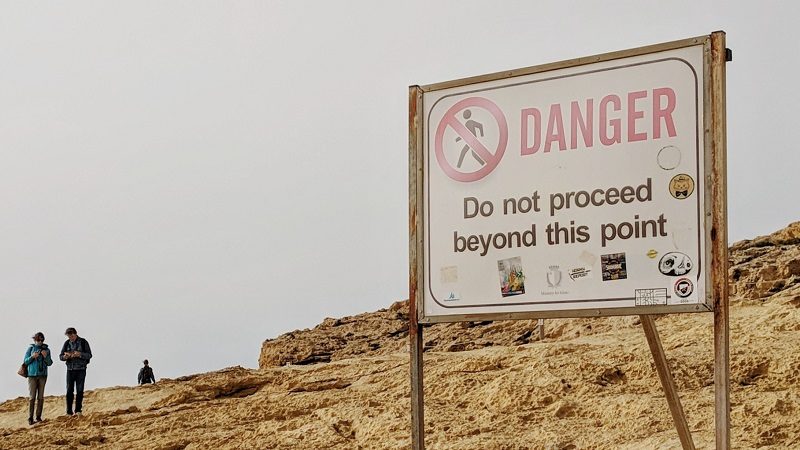In Malta, where everything is upside down and topsy-turvy, this guide is designed as a brief induction into the operational methods of the smallest state in the EU. The ideal dummy is visualised as a foreigner, an outsider, a barrani, a person of European origin who’s been instilled with European values since birth. Part 1 focuses on memory and its erasure.
Usually, when a barbaric atrocity of national significance occurs, common practice within European countries is to lay flowers and candles at the foot of a public statue.
This occurred, for example, in Paris following the Charlie Hebdo assassinations (Malta’s Prime Minister actually joined the march in defence of press freedom, but once the cameras were out of sight he went back to his usual business of undermining press freedom in his own country).
Last December, one year after the terrorist attack on the Christmas market in Berlin, a permanent memorial was unveiled in Breitscheid Square (Breitscheidplatz) where the attack took place.
In Malta, a makeshift memorial was created at the Great Siege monument opposite the law Courts in Valletta, with flowers, candles and cards placed alongside photos of the assassinated journalist.
This memorial serves as a site of collective grief, a visual symbol of respect to Caruana Galizia, and its position opposite the law Courts is particularly pertinent. Not only does it stand as a constant reminder that justice has not yet been served but, at the time of her assassination, over 40 libel cases were pending against her.
Many were instigated by politicians (including the Prime Minister, his chief of staff and his ‘star’ minister), others were mounted by businessmen like Silvio Debono who filed 19 libel suits against her.
In contrast to Paris and Berlin, the makeshift memorial in Valletta has become the target of attacks just as the person to whom it is dedicated was set up as a target of hate by the Party in government. Joseph Muscat’s supporters even celebrated her death.
Rather than respecting people’s democratic right to remember a journalist who exposed corruption on a massive scale and whose life was abruptly brought to an end by a massive car bomb just outside her home on a Monday afternoon last October, the non-threatening tokens of respect have been forcibly removed on countless occasions.
Despite Joseph Muscat’s original assurance that “no stone would be left unturned” in the search for the assassins, demands for the removal of the memorial have been made by Labour Party figures, including MPs.
This is a far cry from the presence of German Chancellor Angela Merkel who joined members of the government, the President and representatives from Berlin in the memorial service there last December.
In Malta, one of the most aggressive opponents to the makeshift memorial is Valletta 2018 Jason Micallef whose crude attacks on the journalist have led to demands for his resignation from over 250 international writers, 72 MEPs, over 100 local artists, and the refusal by Valletta’s twin city of culture, Leeuwarden, to send official representatives to Valletta.
The physical attacks on the memorial have predominantly occurred under the cover of darkness. Given it is directly opposite the law Courts, you might expect extensive CCTV coverage of this area, so finding the culprits should be easy.
Apparently not in Malta, where the Police Commissioner is directly appointed by the Prime Minister and where such concepts as an independent police force don’t come into play.
Coupled with this is the silence of the Prime Minister in his condemnation of such attacks, a silence which also has to be read in light of the Attorney General’s recent brusque reply to the team of international lawyers who, on behalf of the Caruana Galizia family, are demanding a public inquiry into the assassination.
The Attorney General is appointed by the Prime Minister and his assertion that “our judiciary is independent and impartial” needs contextualisation: The absolute majority of those appointed after the Labour Party shot to power in 2013 have an association with the Party in government, including an ex-Deputy Leader of the Party. Another was promoted in time to remove him from the original murder trial.
So a site of respect and remembrance for a journalist who was assassinated almost 11 months ago has become a focus for revenge and retribution.
Nowhere was this more startling than when a late middle aged woman was caught on video desecrating the flowers, candles and photos with a stick. She mounted her assault in full public view and in broad daylight, attacking the objects with a vengeance so at odds with the passive victims of her fury. It’s doubtful she ever read a word of what Caruana Galizia wrote.
Unsurprisingly, the makeshift memorial was removed again on 6 September in preparation for a wreath-laying ceremony to mark Victory Day. Police barriers surrounded it to prevent people restoring it and “this time the order to remove it appears to have come from a State authority”.
This is Malta.












